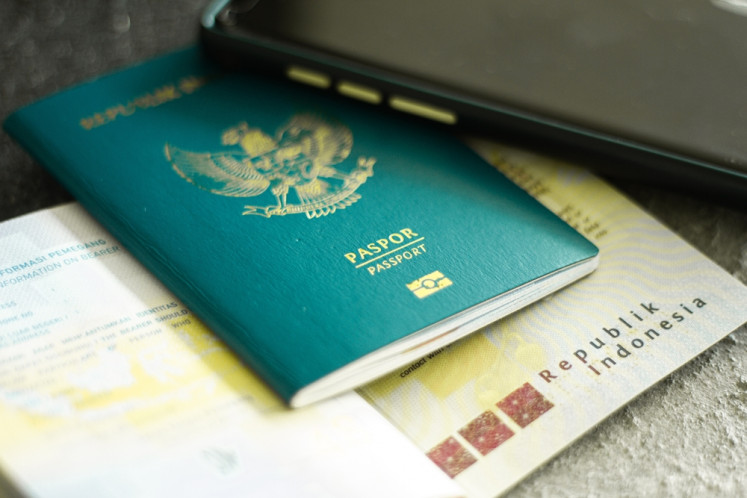Legal processes go online
The country’s highest court, the Supreme Court, recently launched e-litigation, a digital system for legal procedures that is aimed at speeding up the legal process and reducing irregularities within the court system
Change Size

T
span>The country’s highest court, the Supreme Court, recently launched e-litigation, a digital system for legal procedures that is aimed at speeding up the legal process and reducing irregularities within the court system.
Legal experts and practitioners, however, have expressed caution over the new system, saying it may lead to the possibility of abusing the process.
University of Indonesia professor of legal anthropology and gender and law Sulistyowati Irianto said while the new service reflected a sign of progress in the legal system, the electronic service might open new avenues of corruption.
“It is a good step in order to reduce inefficiency, such as cutting out the middlemen in legal proceedings. However, it also means new territory ripe for corruption,” Sulistyowati told The Jakarta Post on Aug. 20.
Corporate lawyer Mahesa Bangun Topo believes that e-litigation is an improvement in the legal process, however, he is wary that a number of lawyers may experience difficulties in adapting to the system.
“Some lawyers will experience difficulties in using IT-based applications, because they are unfamiliar with them,” Mahesa told the Post via text messages on Tuesday.
Others share concerns that electronic legal administration may have psychological consequences.
Erwin Natosmal Oemar, deputy director of Legal Round Table, a law watchdog, praised the adoption of e-litigation as a way to increase efficiency and reduce corruption, however he expressed concern at the ways e-litigation might affect clients.
“This could dehumanize clients, as judges will just read the documents and issue a verdict without thinking about the human element,” Erwin said.
Unveiled during the Supreme Court’s 74th anniversary on Monday, e-litigation is a continuation of the Supreme Court Regulation No. 3/2018 regarding electronic court administration.
Supreme Court Chief Justice Muhammad Hatta Ali said the launch of e-litigation would significantly reduce inefficiency and follow in the footsteps of modern nations in reducing costs, energy and time in legal administration.
“Through e-litigation the legal process will now reduce direct interaction between justice seekers and legal administrators [judges], thereby lowering the chance of a breach in ethics,” Hatta said on Monday.
The process of e-litigation begins with the plaintiff providing the necessary documents online, initiating the suit, the judge will then offer the defendant a hearing through online means should mediation between the parties fail.
The judge will then decide a date for a hearing in the court calendar, with plaintiffs and defendants providing evidence and answering questions electronically.
Supreme Court spokesman Abdullah said judges through electronic channels, such as through teleconference and online video, would hear witnesses and experts, and eventually read the verdict electronically.
“Clients can also file an appeal online. This [online appeals] will only apply starting next year,” Abdullah told the Post on Tuesday.
Previously known as e-Court, the policy was rolled out last March, dealing specifically with e-filing, e-payment and e-summons adding e-litigation as the new legal application to be adopted.
Currently e-litigation will be rolled out in phases with only a few courts starting from September giving the system a trial run before being evaluated further by the Supreme Court, which has the goal of all courts in Indonesia adopting the system by 2020.
However currently e-litigation only covers religious, military administration and civil suits. For criminal charges, there is the Information Technology-based Integrated Criminal Case Management System (SPPT-TI) initiated by the Office of the Coordinating Political, Legal and Security Affairs Minister.
Despite criminal charges being under the mandate of the Supreme Court, there is a signed memorandum of understanding (MoU) regarding online criminal cases management involving the Supreme Court, the Office of the Coordinating Political, Legal and Security Affairs Minister, the National Development Planning Agency (Bappenas) and law enforcement agencies. (tru)









